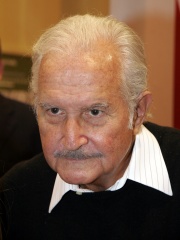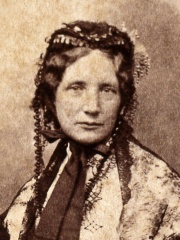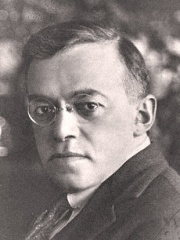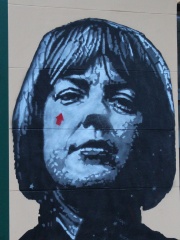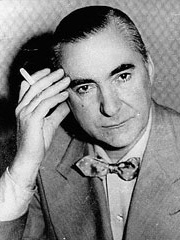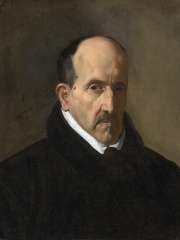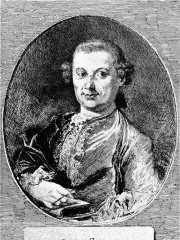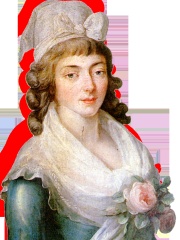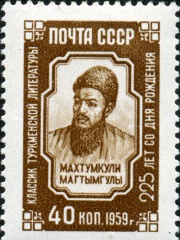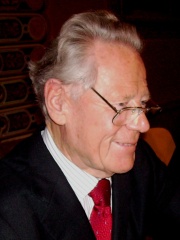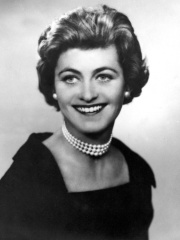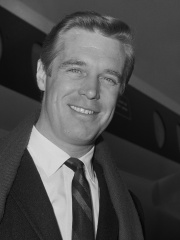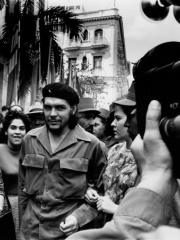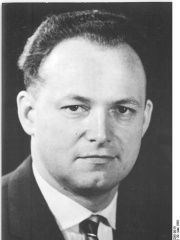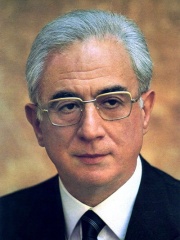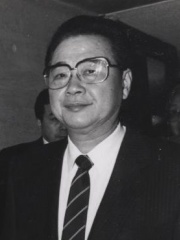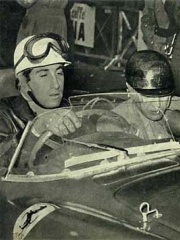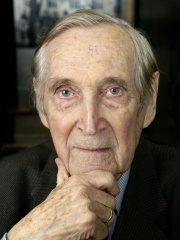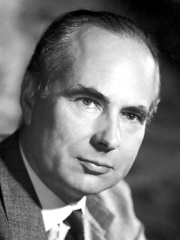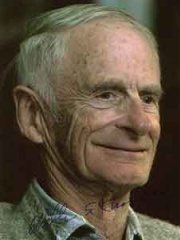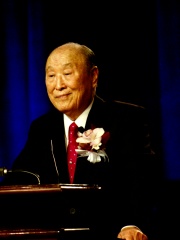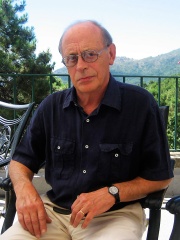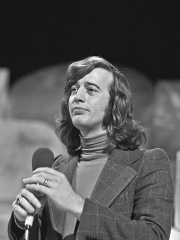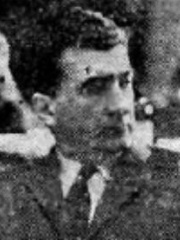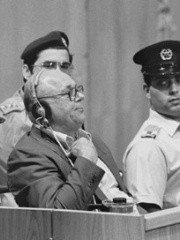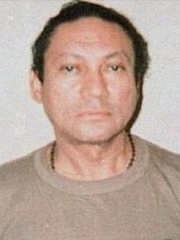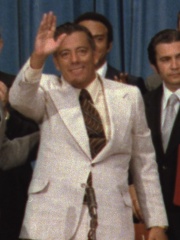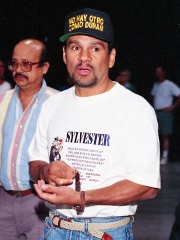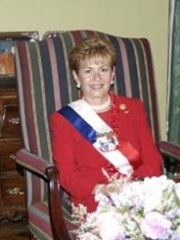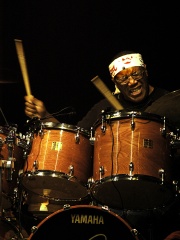Писатель
Carlos Fuentes
1928 - 2012
RU.WIKIPEDIA PAGE VIEWS (PV)
 Carlos Fuentes
Carlos Fuentes
Его биография доступна на 68 различных языках в Википедии (рост с 67 в 2024 году). Carlos Fuentes занимает 664-е место среди самых популярных писатель (рост с 690-е места в 2024 году), занимает 3-е место среди самых популярных биографий из Панамы и занимает 1-е место среди писатель Панама.
Memorability Metrics
Page views of Carlos Fuentes by language
Among Писатель
Among писатель, Carlos Fuentes ranks 664 out of 7,302. Before him are Harriet Beecher Stowe, Ze'ev Jabotinsky, Ingeborg Bachmann, Francesca da Rimini, Alvin Toffler, and Gaius Valerius Flaccus. After him are Curzio Malaparte, Luis de Góngora, Carlo Gozzi, Madame Roland, A. A. Milne, and Magtymguly Pyragy.
Most Popular Писатель in Wikipedia
Go to all RankingsHarriet Beecher Stowe
1811 - 1896
HPI: 71.01
Rank: 658
Ze'ev Jabotinsky
1880 - 1940
HPI: 71.00
Rank: 659
Ingeborg Bachmann
1926 - 1973
HPI: 71.00
Rank: 660
Francesca da Rimini
1259 - 1285
HPI: 70.99
Rank: 661
Alvin Toffler
1928 - 2016
HPI: 70.97
Rank: 662
Gaius Valerius Flaccus
45 - 95
HPI: 70.97
Rank: 663
Carlos Fuentes
1928 - 2012
HPI: 70.95
Rank: 664
Curzio Malaparte
1898 - 1957
HPI: 70.95
Rank: 665
Luis de Góngora
1561 - 1627
HPI: 70.93
Rank: 666
Carlo Gozzi
1720 - 1806
HPI: 70.91
Rank: 667
Madame Roland
1754 - 1793
HPI: 70.91
Rank: 668
A. A. Milne
1882 - 1956
HPI: 70.88
Rank: 669
Magtymguly Pyragy
1733 - 1807
HPI: 70.86
Rank: 670
Contemporaries
Among people born in 1928, Carlos Fuentes ranks 47. Before him are Hans Küng, Jean Kennedy Smith, George Peppard, Kim Yong-nam, Alberto Korda, and Alvin Toffler. After him are Vera Rubin, Manfred Gerlach, Li Ka-shing, Francesco Cossiga, Li Peng, and Alfonso de Portago. Among people deceased in 2012, Carlos Fuentes ranks 32. Before him are Sylvia Kristel, Griselda Blanco, Larry Hagman, Gunnar Sønsteby, Andrew Huxley, and Hebe Camargo. After him are William Standish Knowles, Sun Myung Moon, Antonio Tabucchi, Robin Gibb, Kiro Gligorov, and John Demjanjuk.
Others Born in 1928
Go to all RankingsHans Küng
RELIGIOUS FIGURE
1928 - 2021
HPI: 71.34
Rank: 41
Jean Kennedy Smith
DIPLOMAT
1928 - 2020
HPI: 71.31
Rank: 42
George Peppard
ACTOR
1928 - 1994
HPI: 71.30
Rank: 43
Kim Yong-nam
POLITICIAN
1928 - 2025
HPI: 71.25
Rank: 44
Alberto Korda
PHOTOGRAPHER
1928 - 2001
HPI: 71.24
Rank: 45
Alvin Toffler
WRITER
1928 - 2016
HPI: 70.97
Rank: 46
Carlos Fuentes
WRITER
1928 - 2012
HPI: 70.95
Rank: 47
Vera Rubin
ASTRONOMER
1928 - 2016
HPI: 70.42
Rank: 48
Manfred Gerlach
POLITICIAN
1928 - 2011
HPI: 70.17
Rank: 49
Li Ka-shing
BUSINESSPERSON
1928 - Present
HPI: 70.13
Rank: 50
Francesco Cossiga
POLITICIAN
1928 - 2010
HPI: 69.95
Rank: 51
Li Peng
POLITICIAN
1928 - 2019
HPI: 69.74
Rank: 52
Alfonso de Portago
RACING DRIVER
1928 - 1957
HPI: 69.71
Rank: 53
Others Deceased in 2012
Go to all RankingsSylvia Kristel
ACTOR
1952 - 2012
HPI: 71.83
Rank: 26
Griselda Blanco
MAFIOSO
1943 - 2012
HPI: 71.71
Rank: 27
Larry Hagman
ACTOR
1931 - 2012
HPI: 71.34
Rank: 28
Gunnar Sønsteby
SOCIAL ACTIVIST
1918 - 2012
HPI: 71.30
Rank: 29
Andrew Huxley
PHYSICIST
1917 - 2012
HPI: 71.01
Rank: 30
Hebe Camargo
PRESENTER
1929 - 2012
HPI: 70.97
Rank: 31
Carlos Fuentes
WRITER
1928 - 2012
HPI: 70.95
Rank: 32
William Standish Knowles
CHEMIST
1917 - 2012
HPI: 70.83
Rank: 33
Sun Myung Moon
RELIGIOUS FIGURE
1920 - 2012
HPI: 70.73
Rank: 34
Antonio Tabucchi
WRITER
1943 - 2012
HPI: 70.66
Rank: 35
Robin Gibb
SINGER
1949 - 2012
HPI: 70.32
Rank: 36
Kiro Gligorov
POLITICIAN
1917 - 2012
HPI: 70.24
Rank: 37
John Demjanjuk
MILITARY PERSONNEL
1920 - 2012
HPI: 70.24
Rank: 38
In Панама
Among people born in Панама, Carlos Fuentes ranks 3 out of NaN. Before him are Manuel Noriega (1934), and John McCain (1936). After him are Omar Torrijos (1929), Edward A. Murphy Jr. (1918), Roberto Durán (1951), Rubén Blades (1948), Miguel Bosé (1956), Ricardo Martinelli (1952), Laurentino Cortizo (1953), Mireya Moscoso (1946), and Billy Cobham (1944).
Others born in Панама
Go to all RankingsManuel Noriega
POLITICIAN
1934 - 2017
HPI: 73.80
Rank: 1
John McCain
POLITICIAN
1936 - 2018
HPI: 73.79
Rank: 2
Carlos Fuentes
WRITER
1928 - 2012
HPI: 70.95
Rank: 3
Omar Torrijos
POLITICIAN
1929 - 1981
HPI: 68.76
Rank: 4
Edward A. Murphy Jr.
ENGINEER
1918 - 1990
HPI: 66.18
Rank: 5
Roberto Durán
BOXER
1951 - Present
HPI: 64.62
Rank: 6
Rubén Blades
SINGER
1948 - Present
HPI: 63.53
Rank: 7
Miguel Bosé
SINGER
1956 - Present
HPI: 63.29
Rank: 8
Ricardo Martinelli
POLITICIAN
1952 - Present
HPI: 62.92
Rank: 9
Laurentino Cortizo
POLITICIAN
1953 - Present
HPI: 62.89
Rank: 10
Mireya Moscoso
POLITICIAN
1946 - Present
HPI: 62.10
Rank: 11
Billy Cobham
MUSICIAN
1944 - Present
HPI: 62.05
Rank: 12
Among Писатель In Панама
Among писатель born in Панама, Carlos Fuentes ranks 1. After him are Rosa María Britton (1936).
